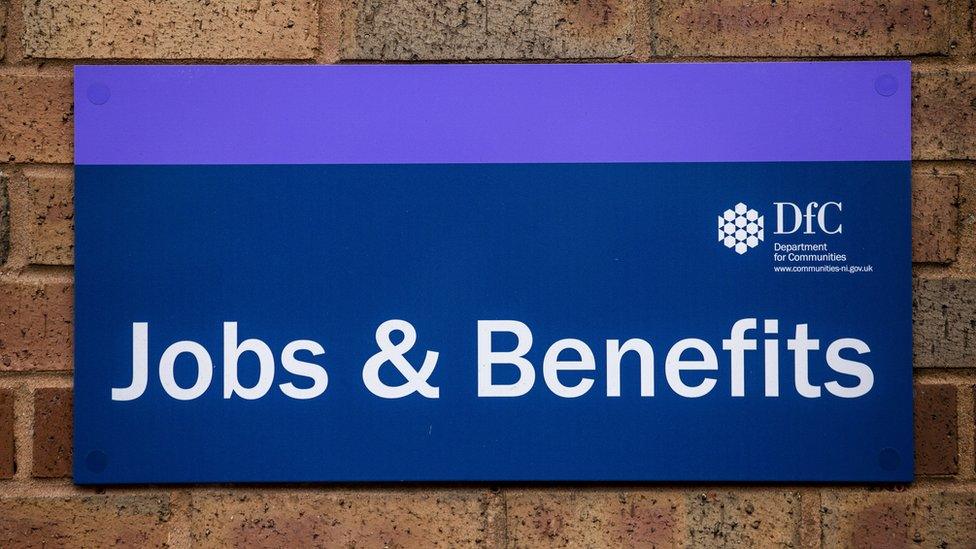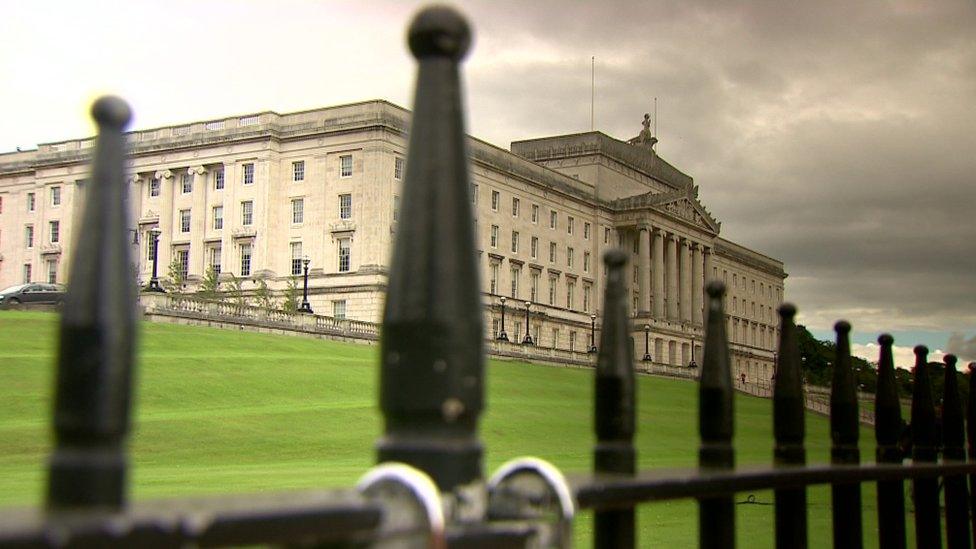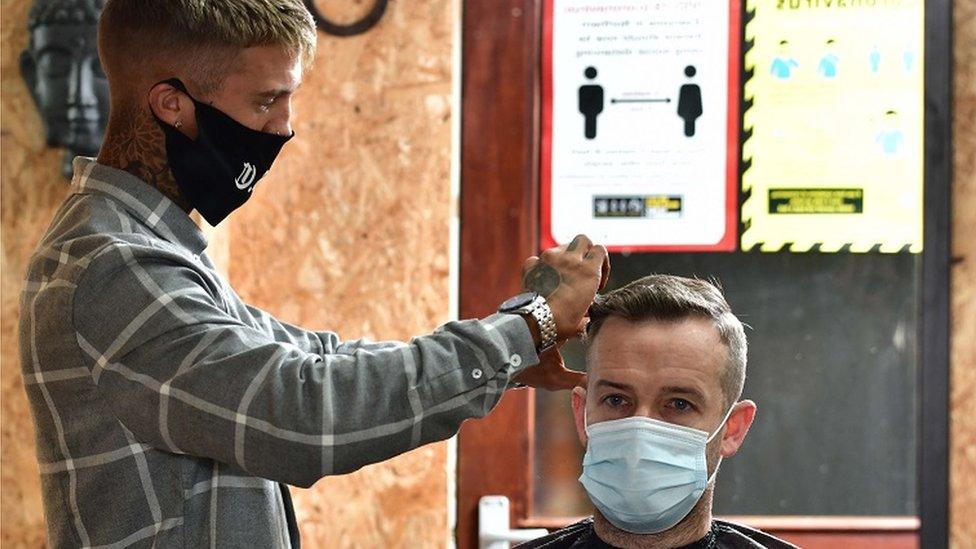Benefits: Should Stormont give money to everyone in NI?
- Published

As the executive announces a £95m retail voucher scheme, attention is turning to other ways to financially support those affected by the pandemic.
Universal basic income (UBI) has been proposed as a potential way of future-proofing for any society-wide event.
It is something that has operated in other countries, but has not yet been seen in the UK.
So could UBI be one solution to huge levels of economic uncertainty, as seen during the coronavirus lockdown?
What is UBI?
Universal basic income is a flat rate payment that is paid on a regular basis to every individual in society, regardless of their employment status.
It is paid alongside any salary that a person might earn and is designed to insure against a sudden change in circumstances.
The amount paid is determined by government, with the aim being to provide enough to cover the basics in life.

The government has already provided financial support on an unprecedented scale during the pandemic, with the furlough and job support schemes, alongside the high-profile decision to extend free school meals during holidays and various business grant schemes.
These moves have come at a time when the economic outlook remains bleak for many.
The highest number of redundancies this year in Northern Ireland was confirmed in October.
There are already record numbers of people claiming unemployment benefits, with projections that 100,000 people will have lost their jobs by Christmas.
How would UBI work in NI?
There has been no concrete plan for how UBI would be rolled out in Northern Ireland.
Advocacy group UBI Lab NI has put forward proposals for the scheme to be used as a 'peace dividend',, external the economic support being used to address not just poverty but division, crime and conflict.
Its projections show that these could cost anywhere from £4m to £310m over two to five years, based on the paths chosen.
Those involved have picked out an area between the Falls and Shankill Roads in Belfast - a place of historical division and deprivation - as somewhere a potential trial could be carried out.
They have suggested sample sizes for a trial, ranging from between 1,000 to 10,000 people, and modelled two scenarios to outline how it could work:
A top-up scheme - this would be the less expensive of the two formats, with payments made in addition to earned income. Under its modelling, the lowest end of this scale would cost £3.9m over two years with a sample size of 1,000 people.
A replacement scheme - this would cost more as it would replace some existing benefits and tax reliefs and, at the highest sample size of 10,000 people over the longest period of five years, it could cost £313m.
Patrick Brown, an Alliance Party councillor and the founder of UBI Lab NI, said the pandemic had "exposed a lot of the frailties of the current economic system".
"It has exposed the fact that a hell of a lot of us, far too many of us, are one crisis away from signing on to universal credit," he said.

"I think that as a result of that, far more people have now got that lived experience of what it is like to sign on for universal credit and to go through that horrific system.
"I think there's going to be a lot less stigma around financial support for people in need as a result."
His party had UBI as a policy in its Westminster 2019 election manifesto.
"The global health crisis has underlined the need to provide more of a safety net for people," Mr Brown said.
"UBI should be looked at as a priority, however the most feasible way to deliver a UBI is on a UK-wide basis, with funding from the UK government."
The SDLP has also previously been on record as supporting the introduction of UBI as part of a plan for economic recovery following the pandemic.
"As the scale and duration of the crisis becomes clear, it is essential that we take steps now to ensure that when we eventually emerge from lockdown, we do so with a fairer and more resilient society and economy," said party leader Colum Eastwood.
The arguments against
The main debate centres around cost and who or what would pay for such a wide-ranging scheme.
Proposals around personal tax allowance or income tax changes are complicated by a need for Westminster to be involved, as Stormont does not have the power to legislate over these areas.
Sinn Féin MLA Caoimhe Archibald said the problem with UBI is it is a "one-size-fits-all approach" and "does not target those in need".
"What we need is a living wage economy and a fair social security system that targets resources where they are most needed," she said.

A DUP spokesperson made the same point, saying any introduction would need to be "a national discussion".
"We previously expressed reservations about both the cost and impact of such a proposal, noting that the deputy director of evidence and impact at the Joseph Rowntree Foundation has stated that UBI schemes increase poverty for children, working-age adults and pensioners compared to the current tax benefits system," the spokesperson said.
The UUP said it would need to see greater evidence of how the scheme would be funded before it could commit to supporting it.
"We would consider the merits of Universal Basic Income if it is properly researched and costed, and shown to be of greater benefit to the people of the United Kingdom than the current benefits system," said a party spokesperson.
Other challenges include the level of systemic change required to run UBI and whether the idea would meet with public approval.
- Published19 November 2020

- Published25 November 2020

- Published11 January 2021
